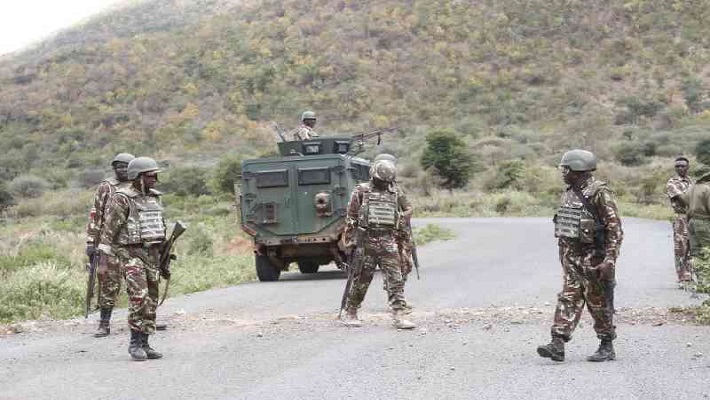By Arnold Neliba
NAKURU, FEBRUARY 28, 2023 (CISA)-“Education and improvement of infrastructure such as the building of roads for accessibility are key as well as availing alternative sources of livelihood resonating with the pastoral communities as some of the solutions to the age-long conflict,” intimates Rev Fr Cleophas Oseso, the bishop-elect of the Catholic Diocese of Nakuru in an interview with CISA on February 27 in Nakuru.
“Once we change the minds of the younger generation through education to see that their life does not just depend on livestock or on the animals that they raid and that there is an alternative way of livelihood, this can help change their mentality and way of life. That is a region where there are very few schools, the road network is not good, and there are very few places where people can get employment, so a lot of their life is spent in the village,” states Fr Oseso.
On February 13, President William Ruto ordered a joint security exercise between the National Police Service and the Kenya Defence Forces to clear bandits and recover illegal firearms from the people after three police officers were killed and eight others injured in an ambush at Kainuk, Turkana County.
Fr Oseso posits that the operations alone may not bring sustainable solutions to the elusive peace in the region.
“When a government has an operation, sometimes they come, do what they do and leave and sometimes people are left all alone by themselves and things again reemerge. The operations alone may not be able to bring peace and sustain it in that area. There is still a lot to be done,” he affirmed.
The bishop-elect who will be consecrated and installed on May 6, said lasting peace requires a concerted effort of all the stakeholders: community and opinion leaders, the government, political and faith leadership, and the goodwill of the affected people to come up with sustainable solutions.
“Sometimes some solutions have been found but they are not long-lasting. They are just solutions for the short term. But for the long-term, there is a need for a plan for that area,” he postulates.
The move, which was hailed by many and has also been criticized by some human rights groups who fear that a military exercise may lead to abuses is carried out in sections of Elgeyo Marakwet, Baringo, Turkana, West Pokot, Samburu and Laikipia counties.
According to Fr Oseso, the army-backed police should act and be guided by the law while respecting human life, avoiding indiscriminate killing and adhering to human rights provisions in their operation.
“Once you make it a military operation, it is going to be rough, and people are going to lose lives, both the innocent people and bandits. We look at the innocent people who are going to lose their lives in the process and ask if it is the right operation for the people?” he poses.
For years, bandits have been attacking both communities and security agencies and stealing people’s livestock. In recent times, the conflict over pastures and water for the animals has heightened tensions in the regions making it difficult for normal civilian and government activities to carry on.
The Catholic Diocese of Nakuru, which covers both the Nakuru and Baringo counties, in which Tiaty Constituency, formerly East Pokot District is situated, is among the areas targeted in the ongoing security operation, which commenced on February 17 following the lapse of a three-day amnesty period imposed by the government for a voluntary disarmament exercise.

